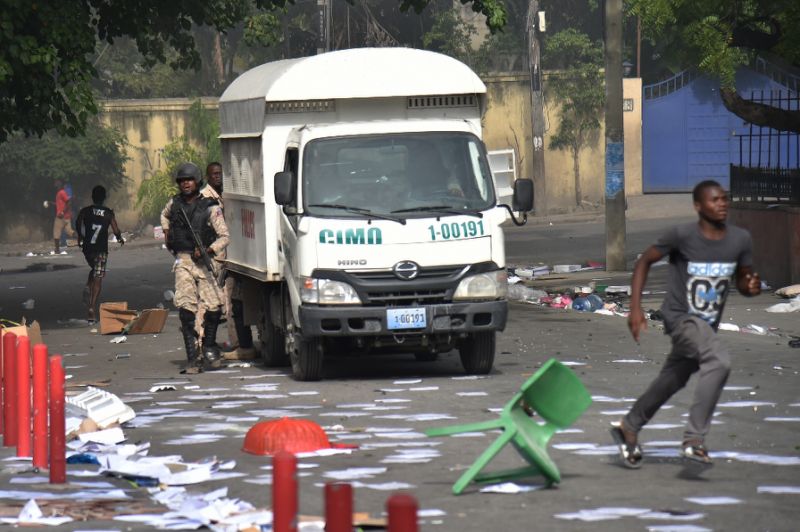Following a series of deadly protests over fuel prices, the International Monetary Fund has agreed to restructure conditions imposed on the Haitian government, IMF spokesperson Gerry Rice said at a briefing Thursday.
Protests erupted on July 6, in the capital city of Port-au-Prince after the government announced it would be reducing subsidies on fuel as part of an agreement with the IMF. The reduction of subsidies caused gasoline prices to increase by 38 percent, diesel by 47 percent and kerosene by 51 percent.
The demonstrations continued into this week, and at least two people were killed during clashes. Several foreign hotels were reportedly vandalized during protests, and U.S. airlines suspended flights to Haiti. The Haitian government quickly backtracked on its plan to reduce fuel subsidies due to the protests.
Rice announced that the IMF is working with Haiti to revise its agreement. While the IMF remains committed to the reduction of fuel subsidies, the fund expects the new plan will take a “more gradual approach” to subsidy reductions.
The new agreement will include “compensatory” social programs aimed at mitigating the impacts on the Haitian people, Rice said. Such measures may include transportation vouchers and other social programs meant to “cushion the impact” of rising fuel prices for Haiti’s most vulnerable people.
“Like everyone else we are saddened by the reports of violence and the loss of life in Haiti,” Rice said. “Going forward, we will continue to support Haiti and stand by Haiti as they develop a revised strategy.”
The IMF and Haiti agreed to a “Staff-Monitored Program” in late February that included agreements about reducing fuel subsidies.
“The Haitian government recognized that general fuel subsidies put a significant strain on Haiti’s fiscal accounts,” Rice said.
The IMF contends that the fuel subsidy program prevents the Haitian government from spending on other priority areas such as healthcare and education.
“The objective is to free-up fiscal space to allow spending on other priorities including important social priorities,” Rice said.
Critics, such as Mark Weisbrot, co-director of the Center for Economic and Policy Research, say the IMF’s program in Haiti imposes cruel austerity measures on one of the world’s poorest countries.
“People are on the edge. And you can’t just cut these subsidies,” Weisbrot told Democracy Now, adding that he believes the IMF program “triggered” the violent outburst in Haiti.
There’s no timetable for the announcement of the terms of Haiti’s new agreement with the IMF, according to Rice, but he said the IMF “would like to move as quickly as possible.”


